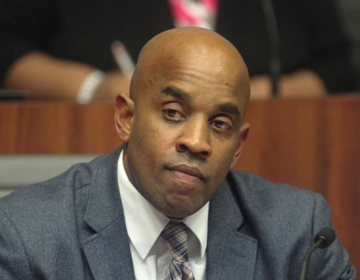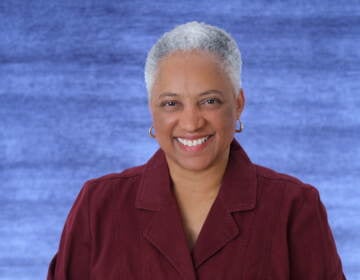After 30 years, a ‘champion of our seniors’ steps down from Wilmington City Council
City voters elected Loretta Walsh to an at-large Council seat eight times over nearly four decades. She urges council members to “remember why they ran.”
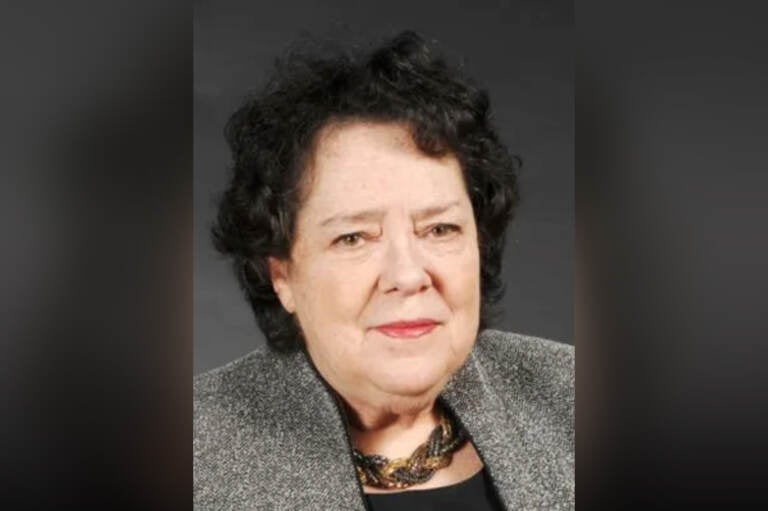
Loretta Walsh is stepping down midway through her eighth term on Wilmington City Council. (City of Wilmington)
In the early 1970s, when Loretta Walsh moved from overwhelmingly white Ridley Township, Pennsylvania, to Wilmington, Delaware, she was simply delighted to be living in a racially diverse city.
“I don’t believe I actually had a real conversation with a person of color until I was like 18 years old,’’ Walsh recalled this week. “And when I moved down here, it was wonderful.”
Walsh never could have imagined the mark she would make on her adopted home, though.
A half-century after relocating from Delaware County, Walsh is a legend in Wilmington politics. She’s now in her 30th year on City Council, a period during which the diehard, gravel-voiced Democrat has waged a fervent fight for women, senior citizens, and improvements in public safety.
“She’s always been really pro-Wilmington and wanted to see Wilmington do very, very well and always stood up for making Wilmington a better place,’’ said James Baker, who served as mayor and Council president during much of Walsh’s tenure.
But after suffering for years from chronic obstructive pulmonary disease, the 73-year-old Walsh has decided to resign in the middle of her eighth term. Her last day on Council is Thursday.
“Everybody knew I was a big smoker and I knew I was a big smoker, obviously,’’ Walsh explained about her health situation. “And I just didn’t quit in time. So unfortunately, that’s going to come back and bite me.”
Council is now taking applications to serve the remainder of Walsh’s term, which runs through December 2024. The whole body will pick her replacement, who must be a Democrat. Council’s website has information about how to apply.
Walsh’s appeal has been broad, and she was always elected to one of four at-large Council seats that voters across the city pick, as opposed to a district seat. In each of her eight elections, Walsh has been one of the top two vote-getters, and led all at-large candidates in the 2020 election.
She first held office from 1985 to 1996, the year she ran for mayor but finished second to incumbent Jim Sills in a four-way Democratic primary. She ran for council again in 2004, and has been elected in every race since.
Walsh could be an outspoken, unapologetic critic when a policy, budget issue or the actions of another official irked her. But Baker said her goal has always been resolution.
“Loretta on one side could be very, very good about working with people and trying to get things done,’’ Baker said.
“Obviously, she had her points of view on issues. She could argue with you and fuss with you or whatever else. But all during the years, even though we differed on different issues, we always remained friends. And she was always someone that you could go and talk to about an issue. She played a major role in terms of trying to keep the city intact and together.”
A mission ‘to represent people who felt underrepresented’
Walsh spoke with WHYY News this week by phone from the hospital, where she is being treated before being transferred to an assisted living facility. She hopes to return soon to her home in west Wilmington’s Highlands neighborhood.
While her voice was raspy during the interview, her battling spirit was as strong as ever. In that vein, she reminded her Council colleagues, who have a reputation for squabbling and political infighting even though traditionally all but one of the 13 members are Democrats, that their only job is to serve constituents.
“I think Council needs to remember why they ran,’’ she said. “They didn’t run for photo ops. They didn’t run to see how many deals they could make. They ran to represent the people of this city. They haven’t quite figured out why they ran. But I think once they do, they’ll all end up being excellent Council members.”
Walsh also reflected on why she first ran in 1985, when she was in her late 30s. She was already active in party politics and had been appointed as the first female chief deputy in the New Castle County Sheriff’s Office.
“I saw some holes in City Council back then and got challenged by quite a few men about women on City Council,’’ Walsh said about an era when no women held a seat. “So that challenged me to run. And of course, I did and I won. And after that I just continued to show them that if I tried, I could still win, including this last round when my illness was starting to set in.”
The current council has eight women in the 13 seats.
Walsh said her goal has always been “to represent people who felt underrepresented, and that would mainly be women and children. I think I was very successful at that. And did so until the end of my days now.”
Early in her career, Walsh was known in city political circles as “The Queen of the High Rises’’ because she focused her attention on the women on fixed incomes who lived in a handful of buildings across the city that provided subsidized housing for senior citizens.
Walsh said the men who dominated Wilmington politics grudgingly gave her that title, but stressed that serving the needs of elderly women, many of them widows, has always driven her.
“Everybody knows that women live longer than men, I guess, because they lead better lives,’’ she said, jokingly. “But one thing that has not changed is women still receive less money than men. And so as long as that is in our economy, it’s going to continue that women will need more services than men. The new person coming in will witness that.”
From the outset of her tenure, she has promoted legislation and championed initiatives that focused on discrimination against the elderly, people with disabilities, and the LGBTQ community. Walsh also helped create the model for community policing.
She currently serves on multiple committees, including Public Safety, Public Works and Transportation, and Finance and Economic Development.
Outside of her political work, Walsh has been a foster mother and mentor for years. She helped found the Roberto Clemente Little League which predominantly serves the city’s Latino community and was also the first woman coaching a team of 6- to 8-year-olds to win their divisional championship.
Like all of Wilmington’s political leaders of the last few decades, Walsh has been distressed by the escalating gun violence in a handful of neighborhoods that encircle downtown. Last year there were a record 39 homicides, though this year there has been less carnage.
As she exits the political arena, she says everybody has to take responsibility for safer neighborhoods. And that means everybody.
“Sadly, the one group that gets blamed all the time are the Wilmington Police Department. What happened to the judges and the magistrates and the [attorney general] and the public defenders?’’ she said.
“And some of the families that have three and four shooters in their families, does anybody ever look to see if there is a gun in the house? There’s all sorts of things that every individual could do, but every individual seems to throw their hands up in the air and say, ‘Well, that’s the way it is. Not much we could do to change it.’”
“But there is a lot to do to change it, and people have to step up to the plate and try it. Folks, don’t blame it on the government. Don’t ask the government to solve everything for you. If we can’t help ourselves, how can we help someone else?”
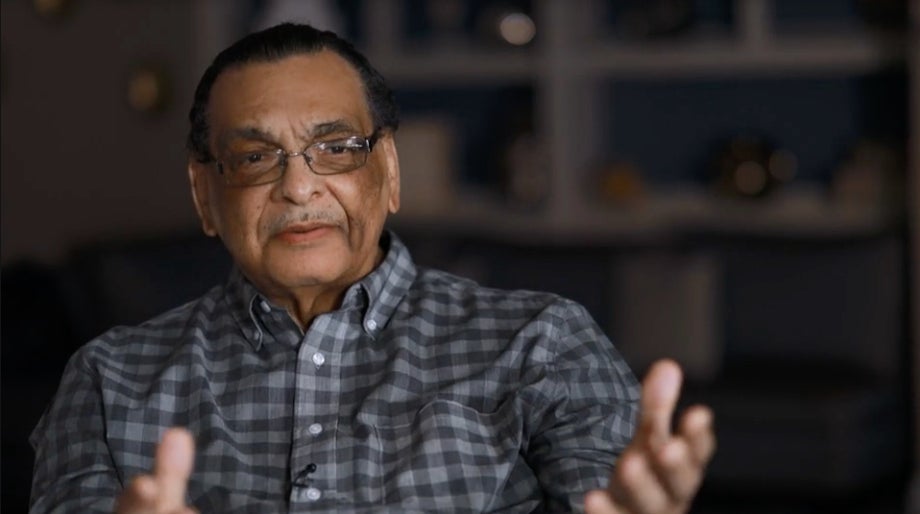
‘Oh my God, who can replace Loretta’
Asked which mayor has been the city’s best during her tenure — Dan Frawley, Jim Sills, Baker, Dennis Williams, or incumbent Mike Purzycki — she didn’t hesitate.
“I would say Purzycki, which is pretty funny because I didn’t vote for him, I didn’t help him out,’’ Walsh said, noting that she also “didn’t support him when he was on County Council” in the 1980s and early 1990s, even though she worked for the county.
Not anymore.
“We’re friends,’’ she says of their current relationship, mostly conducted through periodic phone calls. “He has an almost childlike view of what an urban area could be. And it’s the kind of childlike view that all of us would love an urban area to be. So he’s been an interesting man to watch.”
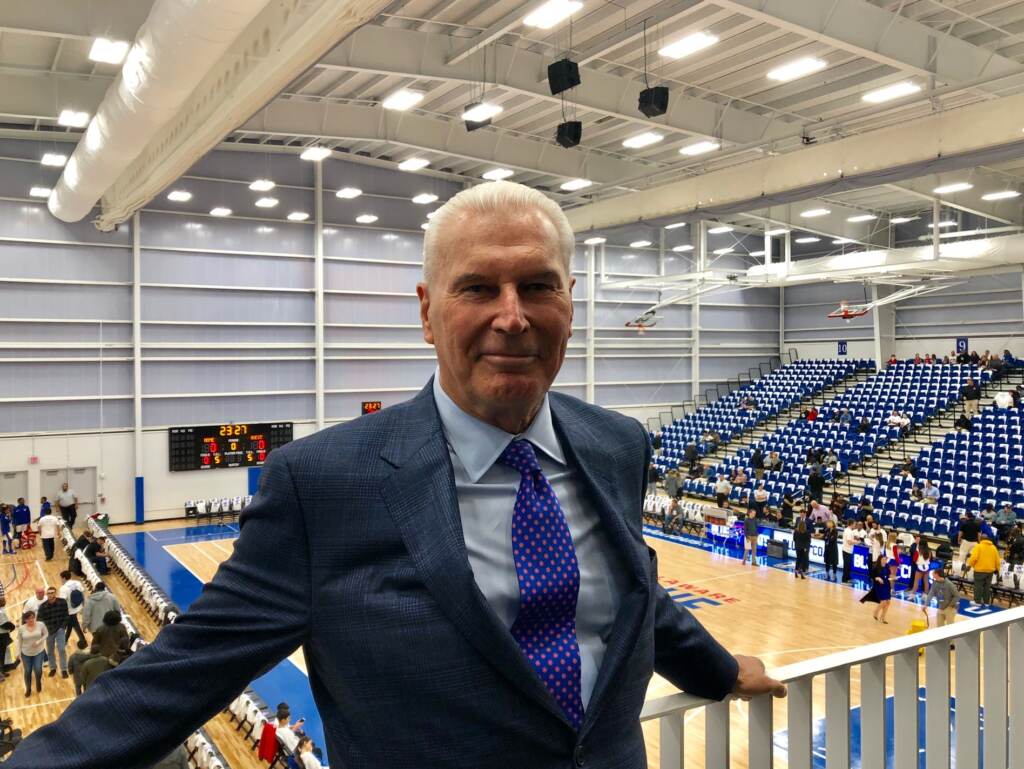
“He doesn’t necessarily shy away from taking on big questions, whereas other mayors have hesitated in the past. [They would say,] ‘You know, I’m not going to do that because I don’t want to do it or to offend Latinos or white women or Black women.’ This mayor doesn’t seem to look at any of that.”
Purzycki had equally kind words for his fellow Democrat.
“It’s sad, the circumstances of her departure, simply because we’ve known for some time that she’s been struggling with her health,’’ the mayor said. “So we kind of assumed this day might come but frankly, you’re never prepared for it when it does come because it kind of changes the chessboard.”
“We’re thinking, ‘Oh my God, who can replace Loretta?’ She’s really has had a stabilizing effect on this Council now for years, because she’s one of the few people in government who’s had the long view, who’s been able to see not only where we are, where we came from, [but] how we got here, where were the mistakes? And now she’s going to be replaced in all likelihood with somebody with a lot less experience, so that’s a big change on our City Council.”
Purzycki said her popularity was evident at the polls. “The comfort that people had with her, I think, is what that speaks most to just that she had become a very reliable elected official in the city and that people wanted to see her return.”
Noting that her political career has spanned nearly 40 years, from the days of backroom ward politics to one where social media presence is a major factor, Purzycki said that’s a testament to Walsh’s ability to connect with residents.
“Everything has changed about the city’s politics except Loretta,’’ he said. “And that’s a remarkable legacy, if you ask me.”
Purzycki also said Walsh will go down in city history for her advocacy for older residents.
“More than anything, she’s been a champion of our seniors in the city. That’s for certain,’’ the mayor said. “Loretta was always, always in their corner year-round, and I think they knew that and they rewarded her for that.”
WHYY is your source for fact-based, in-depth journalism and information. As a nonprofit organization, we rely on financial support from readers like you. Please give today.



